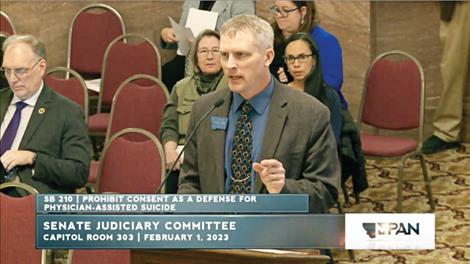Lawmakers narrowly reject prohibition on medical aid in dying
SB 210 would have removed a legal shield for physicians who prescribe lethal medication at the request of terminally ill patients.
Keep Reading!
You’ve reached the limit of 3 free articles - but don’t let that stop you.
















